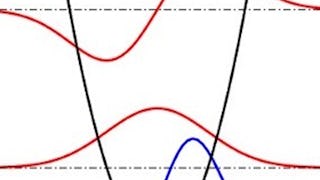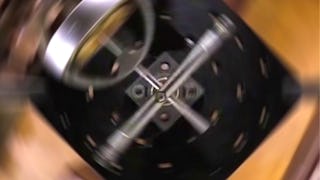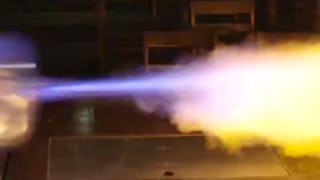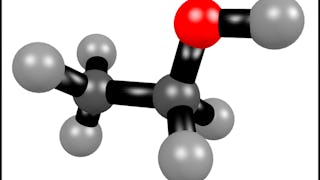This course can also be taken for academic credit as ECEA 5611, part of CU Boulder’s Master of Science in Electrical Engineering degree.

Gain next-level skills with Coursera Plus for $199 (regularly $399). Save now.

Theory of Angular Momentum
This course is part of Quantum Mechanics for Engineers Specialization

Instructor: Wounjhang Park
6,168 already enrolled
Included with
(20 reviews)
Recommended experience
What you'll learn
Specify the quantum states of the electron in a hydrogen atom.
Describe spin states quantum mechanically.
Solve eigenvalue equations of angular momentum operators.
Add general angular momenta.
Skills you'll gain
Details to know

Add to your LinkedIn profile
3 assignments
See how employees at top companies are mastering in-demand skills

Build your subject-matter expertise
- Learn new concepts from industry experts
- Gain a foundational understanding of a subject or tool
- Develop job-relevant skills with hands-on projects
- Earn a shareable career certificate

There are 3 modules in this course
In this module we will introduce the course on the theory of angular momentum and then introduce the quantum mechanical definition of orbital momentum. We will then use the spherical harmonics to express the orbital angular momentum eigenstates and use them to describe the hydrogen atom states.
What's included
5 videos5 readings1 assignment2 discussion prompts
In this module, we introduce the general definition of angular momentum operator based on rotation operator. This general definition allows both orbital and spin angular momentum. We then derive the most fundamental property of angular momentum - commutation relations among their Cartesian components. Finally, we discuss the properties of spin-1/2 system.
What's included
4 videos3 readings1 assignment1 discussion prompt
This module covers the general theory of angular momentum. We start with the commutation relation of angular momentum and define angular momentum eigenstates. We then construct matrix representation of rotation operators using the angular momentum eigenstates as the basis set. Finally, we discuss how to quantum mechanically add angular momenta.
What's included
6 videos3 readings1 assignment1 peer review
Earn a career certificate
Add this credential to your LinkedIn profile, resume, or CV. Share it on social media and in your performance review.
Build toward a degree
This course is part of the following degree program(s) offered by University of Colorado Boulder. If you are admitted and enroll, your completed coursework may count toward your degree learning and your progress can transfer with you.¹
Instructor

Offered by
Explore more from Electrical Engineering
 Status: Free Trial
Status: Free TrialUniversity of Colorado Boulder
 Status: Free Trial
Status: Free TrialRice University
 Status: Free Trial
Status: Free TrialRice University
 Status: Free Trial
Status: Free TrialUniversity of Colorado Boulder
Why people choose Coursera for their career




Frequently asked questions
To access the course materials, assignments and to earn a Certificate, you will need to purchase the Certificate experience when you enroll in a course. You can try a Free Trial instead, or apply for Financial Aid. The course may offer 'Full Course, No Certificate' instead. This option lets you see all course materials, submit required assessments, and get a final grade. This also means that you will not be able to purchase a Certificate experience.
When you enroll in the course, you get access to all of the courses in the Specialization, and you earn a certificate when you complete the work. Your electronic Certificate will be added to your Accomplishments page - from there, you can print your Certificate or add it to your LinkedIn profile.
Yes. In select learning programs, you can apply for financial aid or a scholarship if you can’t afford the enrollment fee. If fin aid or scholarship is available for your learning program selection, you’ll find a link to apply on the description page.
More questions
Financial aid available,





